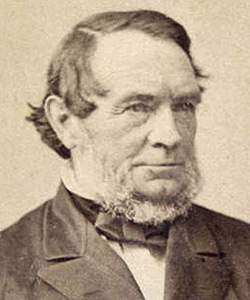Samuel Joseph May (American National Biography)
Scholarship
A chance meeting with William Lloyd Garrison in 1830 drew May into the abolitionist movement. At great personal cost--alienating family, friends, and professional colleagues in the Unitarian ministry over his antislavery principles--May joined Garrison in founding the radical antislavery movement and helped organize the New England Anti-Slavery Society (1832), the American Anti-Slavery Society (1833), and the Garrisonian peace organization, the New England Non-Resistance Society (1838). A model antislavery agent, May lectured throughout the North, published scores of antislavery pamphlets and addresses, and helped modernize the agency system of the antislavery societies. He was one of the few whites to work closely with black abolitionist leaders and made the idea of racial equality central to his antislavery appeal. May defended Prudence Crandall's Canterbury, Connecticut, school for young black women against racist opposition in the early 1830s, and he admitted the Lexington Normal School's first black student. Having become a leading figure in western New York's underground railroad, he helped plan in 1851 the rescue of the fugitive slave William "Jerry" McHenry…
Despite his peace principles, May saw the Civil War as the only opportunity to end slavery and urged the Lincoln administration to crush the rebellion. He formed one of the first freedman's aid societies and spent his remaining years promoting Radical Reconstruction, women's rights, education reform, and Unitarianism.
Despite his peace principles, May saw the Civil War as the only opportunity to end slavery and urged the Lincoln administration to crush the rebellion. He formed one of the first freedman's aid societies and spent his remaining years promoting Radical Reconstruction, women's rights, education reform, and Unitarianism.
Donald Yacovone, "May, Samuel Joseph," American National Biography Online, February 2000, http://www.anb.org/articles/15/15-00454.html.




